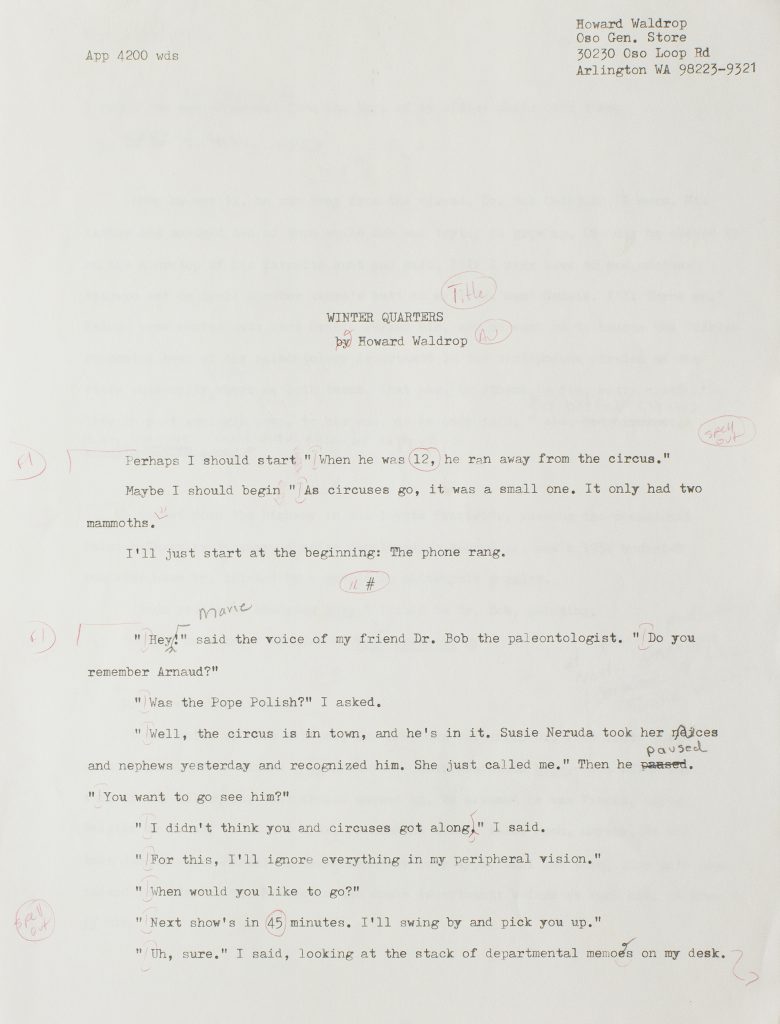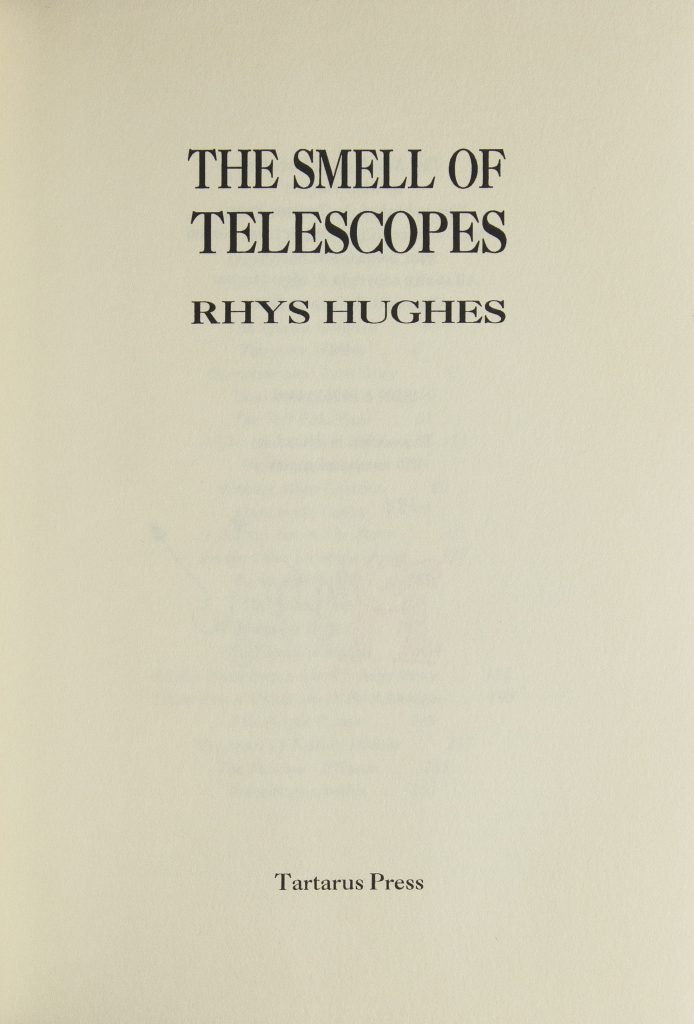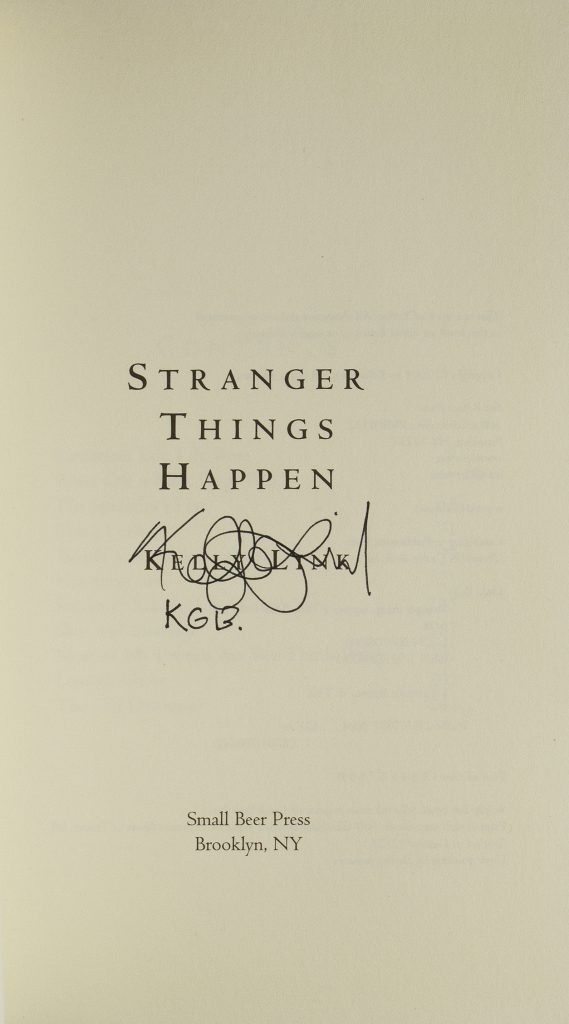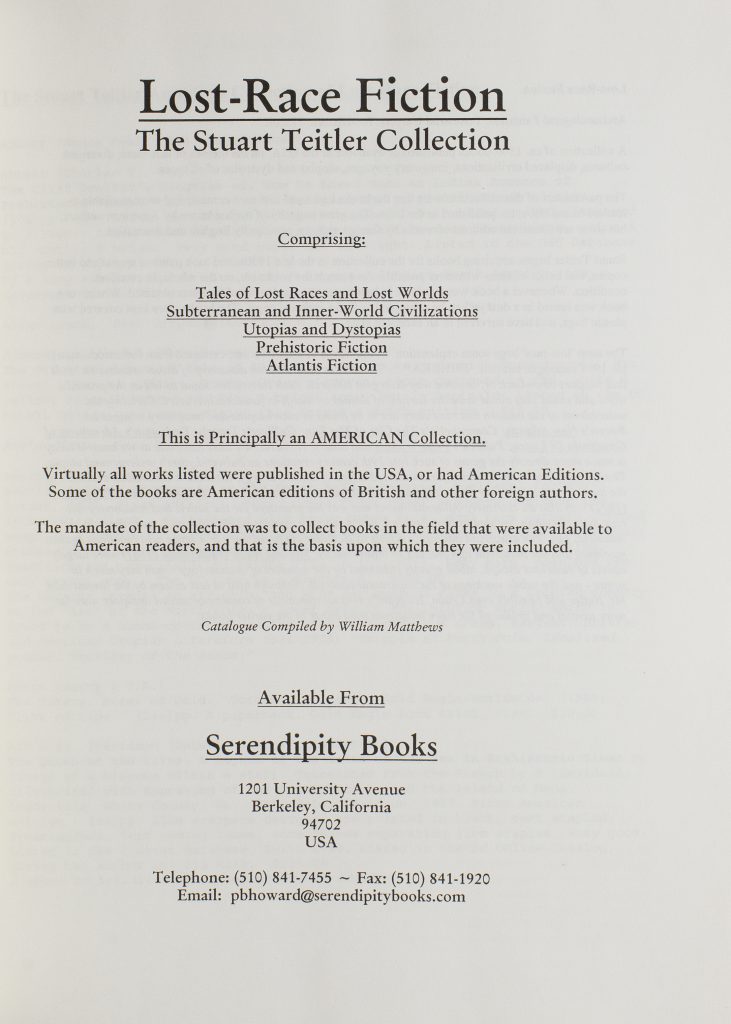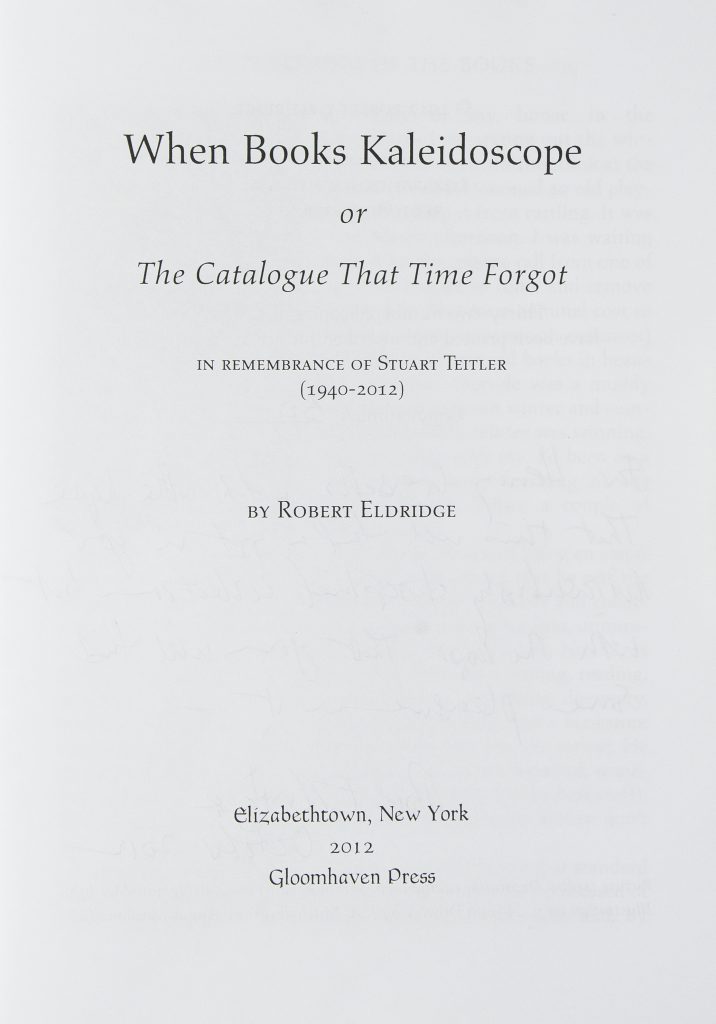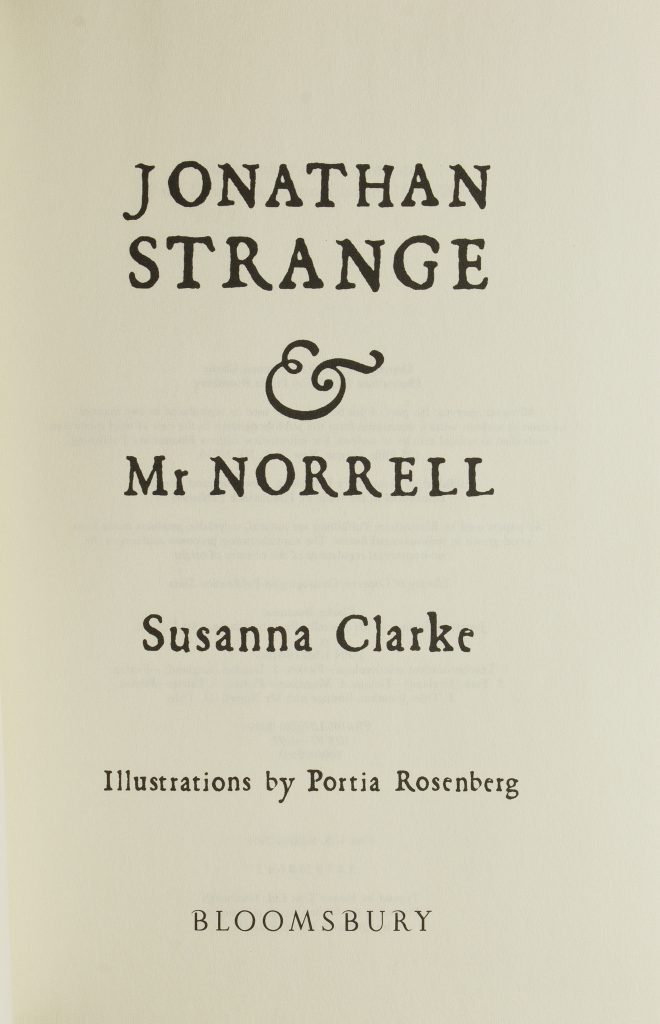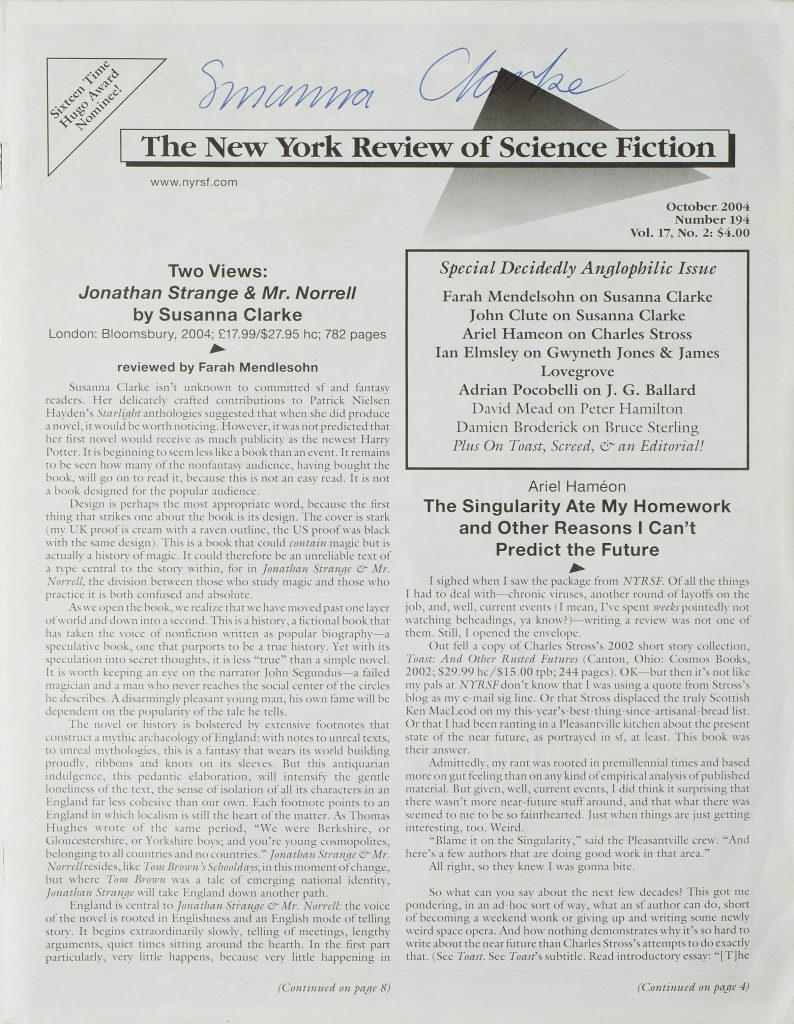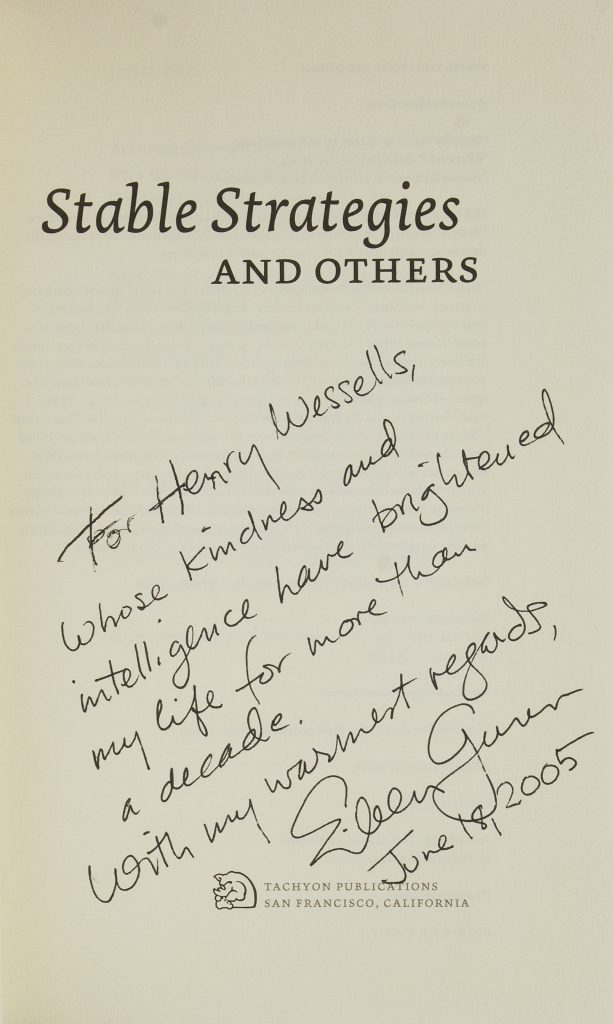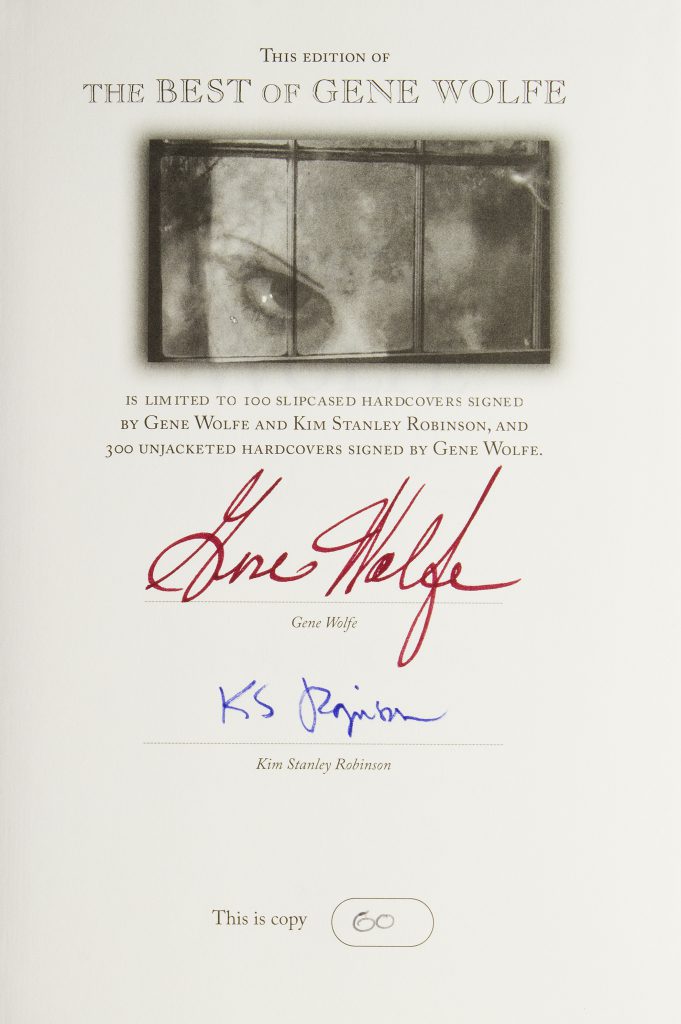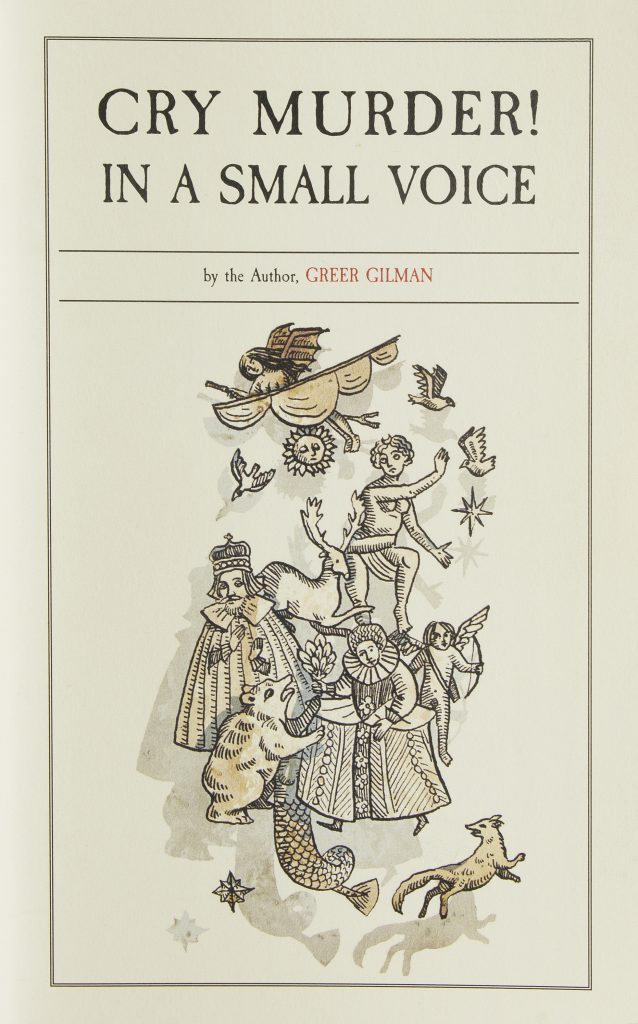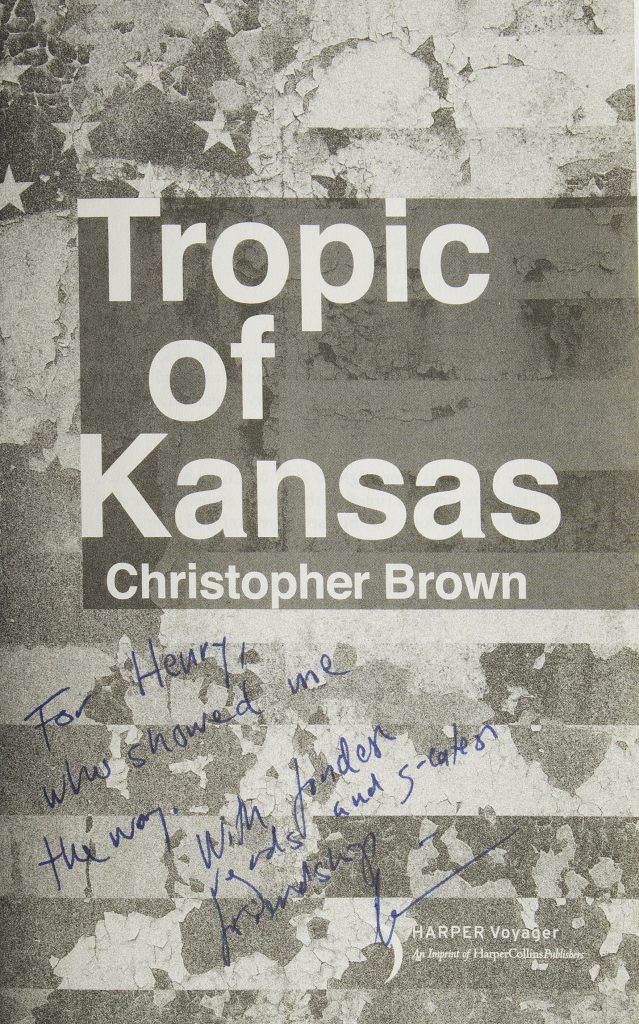Howard Waldrop. Winter Quarters. Original typescript with revisions in the author’s hand, marked for typesetting in red by Ellen Datlow, summer 2000.
Howard Waldrop is an American original, a brilliant author whose recognition has largely been among other writers and a small group of editors. He makes things happen like no one else can. “Winter Quarters,” a story of the cloning of extinct species and a small-time circus, one that “only had two mammoths,” includes a remarkable and utterly chilling one-page Brechtian vaudeville of the Holocaust.
No. 62.
Rhys Hughes. The Smell of Telescopes. Carleton-in-Coverdale, North Yorkshire: Tartarus Press, 2000.
Who could resist a book with this this title? A collection of short fantastical stories by a playful and talented writer, and one of many interesting books issued by Yorkshire-based Tartarus Press.
No. 63.
Kelly Link. Stranger Things Happen. Brooklyn, NY: Small Beer Press, 2001.
First book by the critically acclaimed Kelly Link, whose short fiction has won the Hugo, Nebula, Tiptree, and World Fantasy awards.
Also the first book from Small Beer Press, who have gone on to publish many notable award-winning books from established authors as well as by new writers.
No. 64.
William Mathews. Lost-Race Fiction. The Stuart Teitler Collection. Comprising Tales of Lost Races and Lost Worlds, Subterranean and Inner-World Civilizations, Utopias and Dystopias, Prehistoric Fiction, Atlantis Fiction. Berkeley: Serendipity Books, 2001.
Catalogue of the American lost-race fiction of west coast book scout and collector Stuart Teitler (1940-2012), whose axiom was “don’t look for books, look at them.” Teitler was contemptuous of the well-trodden pathways of collecting, and was also reputed to be indifferent to condition. The lost-race genre had its heyday from the 1870s to the aftermath of the Second World War.
Published by Berkeley bookseller Peter Howard in an edition of ten copies.
No. 65.
Robert Eldridge. When Books Kaleidoscope or The Catalogue That Time Forgot. In Remembrance of Stuart Teitler (1940–2012). Elizabethtown, New York: Gloomhaven Press, 2012.
With a memoir of west coast book scout and collector Stuart Teitler (1940-2012).
No. 65.
Susanna Clarke. Jonathan Strange & Mr Norrell. New York: Bloomsbury, 2004.
Jonathan Strange & Mr Norrell invokes magic in Britain during the Napoleonic Wars, but it is an English magical tradition which Clarke has invented that confers power upon its practitioners. Like Lord Byron, the magician Jonathan Strange derives his power from the manipulation of words. The tradition seems to fit into the known historical and literary and social fabric of our world. This closeness is by turn whimsical and deadly serious, and it is deceptive, for Clarke’s novel constitutes an extension of the geography of imagined lands. The house of Lost-hope, and its doleful corridors, and the fact “that Piccadilly stood in close proximity to a magical wood,” are potent additions to the gazetteer of fantasy. Books are integral to Clarke’s tale.
Jonathan Strange & Mr Norrell won the Hugo and World Fantasy awards.
No. 66.
The New York Review of Science Fiction. Special Decidedly Anglophilic Issue. Vol. 17, No. 2. October, 2004.
Signed by Susanna Clarke across the top.
With reviews of Jonathan Strange & Mr Norrell by Farah Mendlesohn and John Clute.
No. 66.
Eileen Gunn. Stable Strategies and Others. San Francisco: Tachyon, 2004.
“It doesn’t follow the old rules.”
Stable Strategies and Others, from San Francisco publisher Tachyon, is a collection assembling stories of corporate and social life in the age of the computer and mass media. Gunn was a director of the advertising department of Microsoft in the mid-1980s, and “Stable Strategies for Middle Management” (1988) is a satire of an office culture where bioengineering modifications are the stepping-stone to success. Other tales look at teen culture, childhood education, and Richard Nixon as a television talk show host. Gunn has a vast acquaintance in science fiction, and several of her stories have been collaborations with other writers in the field. Her website The Infinite Matrix (2001–8) was a brilliant literary science fiction magazine in online form.
No. 67
Gene Wolfe. The Very Best of Gene Wolfe. A Definitive Retrospective of His Finest Short Fiction. Hornsea, East Yorkshire: PS Publishing, 2009.
Collection of short stories by the legendary Gene Wolfe, the nimblest stylist at work in contemporary science fiction. Wolfe’s novels include multi-volume series dense with meaning, and several works that interrogate the nature of genre literature: fantasy, pirate fiction, pulp adventure, and science fiction. This applies equally to the short fiction: it is tricky and indirect, rich in allusion and portent, and sometimes written with a simple clarity that nonetheless conceals as much as it discloses.
One of 100 copies signed by Wolfe and Kim Stanley Robinson, who wrote the introduction.
No. 68.
Greer Gilman. Cry Murder! in a small voice. Easthampton, Mass.: Small Beer Press, 2013.
Greer Gilman’s brilliant use of language and her deep knowledge of Elizabethan and Jacobean stage inform this tale, where poet Ben Jonson investigates the murders of young boys at the ragged edges of the theater. Gilman’s portrait of the criminal is also a razor-sharp dismissal of the theory that the Earl of Oxford wrote Shakespeare’s plays.
Winner of the Shirley Jackson award.
No. 69.
Christopher Brown. Tropic of Kansas. New York: Harper Voyager, April 2017.
“It had been an emergency for as long as Tania could remember.”
Set in an alternate USA riven by political strife, ecological and economic collapse, Tropic of Kansas is a novel of a new world coming into being: dark, nimble, hilarious, deeply alarming, truly American.
Proof copy, presentation inscription from the author:
“For Henry who showed me the way . . .”
No. 70.
Contents
A. Collection Statement
B. Early Works 1762-1912
C. 1920s
D. 1930s
E. 1940s & 1950s
F. 1960s & 1970s
G. 1980s & 1990s
H. Now 2000-2017
I. Bibliography
J. Women Authors
K. Signed or Inscribed

